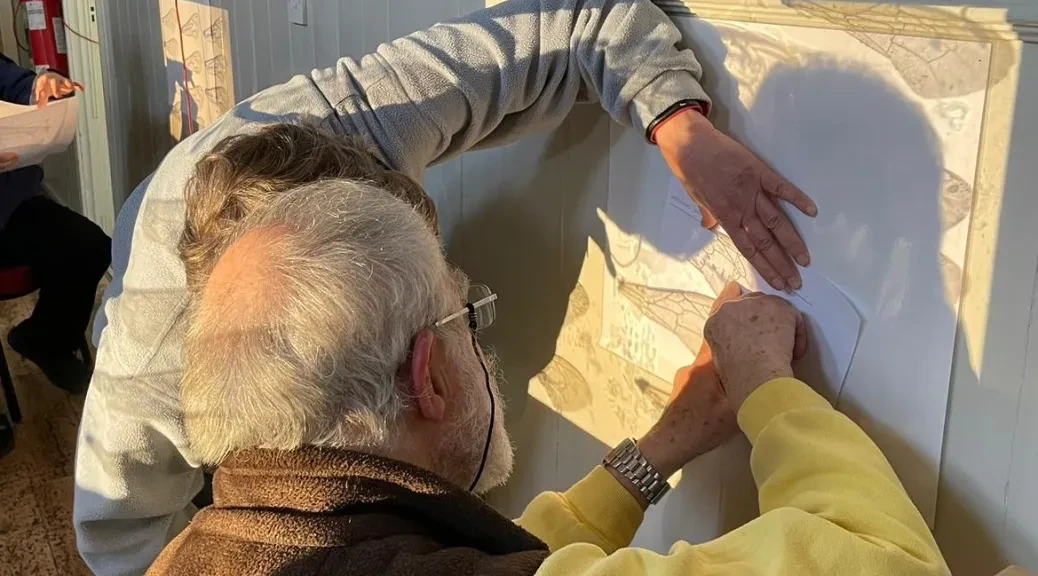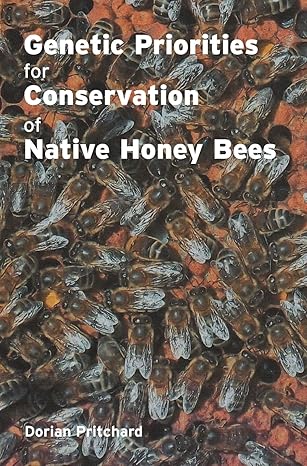
Few individuals have made such a profound contribution to both the science and practice of beekeeping as Dr. Dorian Pritchard. A retired university lecturer in medical genetics, Dorian has spent over four decades applying his scientific expertise to the practical and urgent task of conserving Apis mellifera mellifera – the European dark bee, Britain’s only native honey bee.
Based in Northumberland, Dorian began beekeeping in 1979. His turning point came while comparing imported bees and native strains side by side in a rape field. The results were unequivocal: the local bees outperformed their foreign counterparts in both colony performance and honey quality. From then on, he focused entirely on conserving and improving A. m. mellifera.
A Scientific Mind Applied to the Hive
Dorian is not just a hobbyist turned advocate. He holds a PhD in genetics, authored Foundations of Developmental Genetics, and co-authored three editions of Medical Genetics at a Glance – a widely used textbook that received top awards from the British Medical Association. Since retiring from academia in 2000, he has applied his deep knowledge of genetics to bee breeding, conservation, and public education.
Unlike the hybrid-focused approach popularised by Brother Adam and others, Dorian’s methodology is grounded in evolutionary biology. He recognises the dangers of hybridisation, particularly the breakdown of co-adapted gene complexes, and instead promotes selective breeding within the native subspecies. His focus: improving local stock while preserving their genetic integrity.
“You will make only slow progress if you introduce mating partners that have not been subjected to the same prior selection regime.”
– Dorian Pritchard, Breeding Honeybees on a Small Scale
A Global Voice for the Native Bee
Dorian served as Conservation Officer for the Bee Improvement and Bee Breeders Association (BIBBA) and for 10 years as President of SICAMM – the international organisation for the conservation of A. m. mellifera. In both roles, he worked tirelessly to raise awareness of the threats facing the dark bee and to promote local breeding, drone congregation zones, and genetic screening as tools for long-term preservation.
He has written widely in the beekeeping press, including a notable peer-reviewed paper:
“Grooming by honey bees as a component of varroa resistant behaviour“ (Journal of Apicultural Research, 2016), documenting how his near-native colonies displayed high levels of grooming behaviour – one of two critical strategies his bees use to achieve near-total resistance to Varroa destructor.
His practical success in breeding Varroa-resistant native bees without chemical treatments stands in stark contrast to commercial strains that collapse without regular miticide use. In this sense, Pritchard’s work offers not just a sustainable model – but a scientifically grounded one.
Teaching and Community Engagement
Dorian is also a teacher. Over the years, he’s introduced around 300 students to beekeeping through courses at Kirkley Hall Agricultural College. His lessons go beyond hive management – they instil respect for native biodiversity, caution against indiscriminate imports, and empower beekeepers to become stewards of their local ecotype.
He currently leads a conservation group in Northumberland dedicated to protecting the region’s native bees, expanding their range, and educating fellow beekeepers. The group practices open-mated breeding, queen selection based on performance traits, and avoids hybrid stock – all aligned with his principles of local adaptation and long-term resilience.
A Voice of Experience and Urgency
In his 2023 book Genetic Priorities for Conservation of Native Honey Bees, Dorian distills a lifetime of experience and scientific insight into a practical guide for conserving A. m. mellifera. Despite his background in genetics, the book is accessible, grounded, and refreshingly free from jargon.
“This is an important book written by a retired genetics lecturer. I was pleasantly surprised as the book is neither theoretical nor genetics heavy, but is mainly written from his own personal experience of managing near-native bees in Northumberland.”
– Reader Review
His call to action is clear: the future of the native dark bee depends not on imports or hybridisation, but on our ability to preserve and improve what we already have – through science, patience, and respect for evolutionary processes.
Why Dorian Pritchard Matters Today
As the UK continues to grapple with high queen import rates, loss of local diversity, and growing pressure from pests and climate change, Dorian Pritchard’s work stands as a beacon of what’s possible.
He represents a rare blend of rigorous science, deep field experience, and unwavering dedication to one of Britain’s most endangered native species.
In a world that often prioritises short-term gain over long-term sustainability, his message is more vital than ever: our bees can look after themselves – if only we give them the chance.

